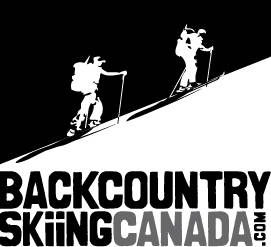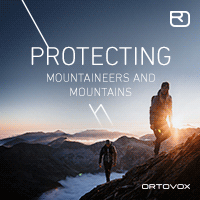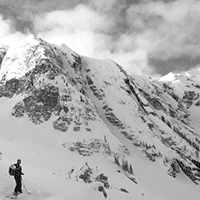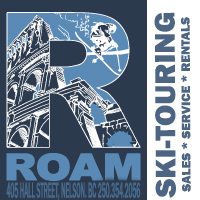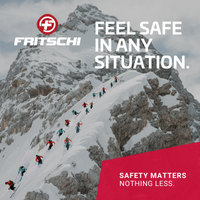How to tame your avalanche dragon
An interesting article about avalanche risk, seems like a good time for a review?
In "Transforming Your Dragons" Dr. Jose Stevens lays out seven archetypes that humans can be afflicted with that I see negatively affecting our decision-making capabilities in high-risk environments like skiing in avalanche terrain. In his work is a powerful tool for putting a language to human factors in a way that we can easily identify with, if not fully admit to. Stevens calls them "Dragons" and they are:
1. Arrogance
2. Self-Deprecation
3. Impatience
4. Martyrdom
5. Greed
6. Self-Destruction
7. Stubbornness
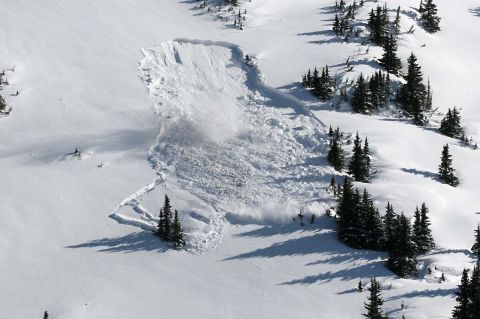
According to Stevens, each of us is particularly plagued by one of these seven dragons and they surface, or gain control, in the presence of fear. However, it is also important to keep all of them in our awareness. Let’s take a closer look at each one of these and see how they can play out in the backcountry skiing paradigm.
Arrogance. There is a big difference between confidence and arrogance. A confident winter backcountry guide or enthusiast also has an ear to listening to other people's input. There is a willingness on the part of the confident individual to welcome new information from anyone in the group. Conversely, a person with the arrogance dragon will say, "I am/know the best" and believe it. Paired with this belief - that we are the most skilled or qualified - is the complete inability to receive input from others. To us, there is only one way to do something, or the opinion we hold is the only one worth considering. We might scoff at other people's ideas and mock them as substandard or stupid. Rooted in the arrogance dragon is the fear that we are not good enough and reject other input because we are too insecure to hear other perspectives.
This is a real hazard while traveling in avalanche terrain because individuals do not make as good decisions as they would with the input of other people. Any leader worth their salt uses advisors and listens to and considers the most humble advice. Individuals have blind spots; a limited perspective grounded in our biases and perceptions. If we invite others into the process, the scope of available information broadens, which can impart the choices we make. Those of us plagued with the arrogance dragon do not invite more information, especially from people we perceive as having less experience or who are lower on the totem pole. This can and does lead to information gaps in the decision making process. I have lived this situation.
Self-Deprecation. If self-deprecation is our dragon we do not feel worthy. We suffer from a lack of self-confidence and feel that our contribution is not of value, so we do not speak up and share what we know. If we have this dragon and are paired with an individual with the arrogance dragon, watch out. If the arrogance sets up an unhealthy hierarchy, a person who suffers from self-deprecation reinforces it. Self-deprecation is a lack of confidence to the point that we forfeit our voice in the decision making process. We may possess the most relevant piece of information, but we are too afraid to share it because we feel we carry no value in our perceptions. If we consider that all parties exposed to the hazard of an avalanche are risking the same thing - their life - then from an ethical perspective, each person deserves a voice. If self-deprecation is our dragon, we need to become aware of it, gather our courage and speak up. Fear is what feeds all dragons, and it is up to us with the self-deprecation dragon to master social courage.
Impatience. Impatience is characterized by needing to have something now and the phrase "Don't get in the way" depicts how single minded we can be when consumed by this dragon. People with the impatience dragon are stricken with the fear that if things are not happening quickly, something bad will happen. However, being in a hurry can lead to a failure to take the required time to do a task safely and efficiently. In the mountains, speed is most often equated with safety. However, faster does not always mean safer. There are many times when going more slowly can help us maintain a higher level of diligence and therefore safety. There are situations when the only way to manage the risk is to go slowly. Implementing any safety measure will take time, yet the dividends can be worth a great deal. Think of crossing an avalanche slope one at a time. It is uncomfortable to travel slowly sometimes. With the impatience dragon on our back, we fear worsening conditions with time, but only time will tell if the conditions worsen. If time is a real issue, explore other options and terrain choices rather than rush through a critical piece of terrain.
Martyrdom. Martyrs believe we are the "victims" of a situation and see ourselves as oppressed. As a victim, we feel like we have no choice in a situation; that others are deciding things for us and that we have no other option but to heed the directives of others. It is different from self-deprecation in that we feel that we have good ideas, but they are not heard or heeded by our colleagues or friends. The emphasis is on a sense of powerlessness, not that our ideas are bad. Following others onto a suspect avalanche slope with martyrdom as our dragon can be deadly to us and to others. There is a chance that other people will die when we choose not to share a key piece of information: a difficult consequence to live with. As a martyr, we abdicate the decisions to others and take a "woe is me" attitude. We say "Oh, I don't think this is okay, but they want to go there, so I guess I'll go with the flow, I don't want to make waves." The interesting thing about martyring oneself while backcountry skiing is that death in this arena is not for an important social cause, like freedom from oppression or for peace. Again, fear is the cause, fear of standing in one's truth and living it to the full, regardless of social fallout.
Greed. Greed is an easy dragon to understand, especially on a powder day when the sun is shining. The statistical fact that more avalanche tragedies happen on sunny days with new snow underpins the concept of greed. The phrase, "There are no friends on a powder day" is funny, but illuminates the effect of greed. Greed is the fear of "not enough". We fear that we will not get our quota of powder turns as it compares to other groups. After a long period without any snow it becomes more likely that we may undermine our own ability to make rational decisions when there eventually is snow, making "going for it" easier, and escalating our tolerance for risk. Our greed dragon also comes into play when we race ahead of other groups in order to get first tracks. Our focus on the "race" and fear of not getting our share of the untracked snow can erode good decision-making.
Self-Destruction. When we have self-destruction as our dragon we lack the ability to care for and nurture our own best interest. Self-destruction may be fuelled by a general propensity for self-hate, depression, or a sense of despair. This is not a sought-after ingredient for making good decisions in avalanche terrain. It brings a "devil may care" attitude to an activity that requires great care and diligence to make good choices for the well-being of self and others. If self-destruction is our dragon, we look for drama in our lives and find ways to make bad things happen to us, often unconsciously. Our fear is a fear of success and the responsibility that it brings. This dragon may fuel a long list of successes in the mountains but the question is, from what place are they coming?
Stubbornness. When afflicted by the stubbornness dragon, we refuse to cooperate. It may be that we are afraid to be wrong about the choices we have in mind, and will not adopt other suggestions. Or we are so fixed on the objective of the day that we can't shake ourselves from achieving the goal. Single mindedness can be a required strength in hazardous environments but the game is about seeking the best solution to the challenges we face. There is a story about three skiers who abandoned a fourth in a remote place in the Selkirk Mountains because the fourth did not feel that a slope, on a part of a high level ski traverse, was safe to ski. The three left the fourth all alone in the middle of nowhere to fend for himself and his own retreat. It would seem that the three were afraid of not completing the objective and were fixated on it. Stubborn, and perhaps greedy, but make no mistake... this is profoundly unethical behaviour in the mountains. The fourth skier called in to Parks Canada and was flown out, so it ended well, but at the risk of another party, the park wardens.
Arrogance, self-deprecation, impatience, martyrdom, greed, self-destruction, and stubbornness are all fueled by fear. Respectively the fear; of being found out as being not as good as we claim, our own self-efficacy, not enough time, taking personal responsibility for our actions, not having enough, being happy and healthy, and of being wrong. These are all a hazard to the backcountry skier, or to a human being traversing through life. I think I have been gripped by all of these dragons at one time or another. However, mostly I have tripped on being a victim to others: martyrdom. Now it is all in awareness, which is all I can do to remedy the fear that fuels the dragon.
Love conquers the fear that fuels the dragons. It nurtures the opposites: meekness, self-approval, composure, contentment, generosity, self-creation, and flexibility. There is a place for fear in the backcountry skiing game. Fear keeps us on our toes and brings focus to hazardous situations... but that is all the credence we should lend to fear. As far as improving ourselves in the game of backcountry skiing, ultimately the easy thing is to point out other people's dragons, but the real task is to come to know our own. That is the birth-place of courage and self-knowledge. This is where we will make a leap forward in terms of fewer tragedies; when we become conscious of our behaviour out there. All of life seeks this very evolution: the evolution of consciousness.
Ken Wylie
November 6th 2015
Mountains For Growth
